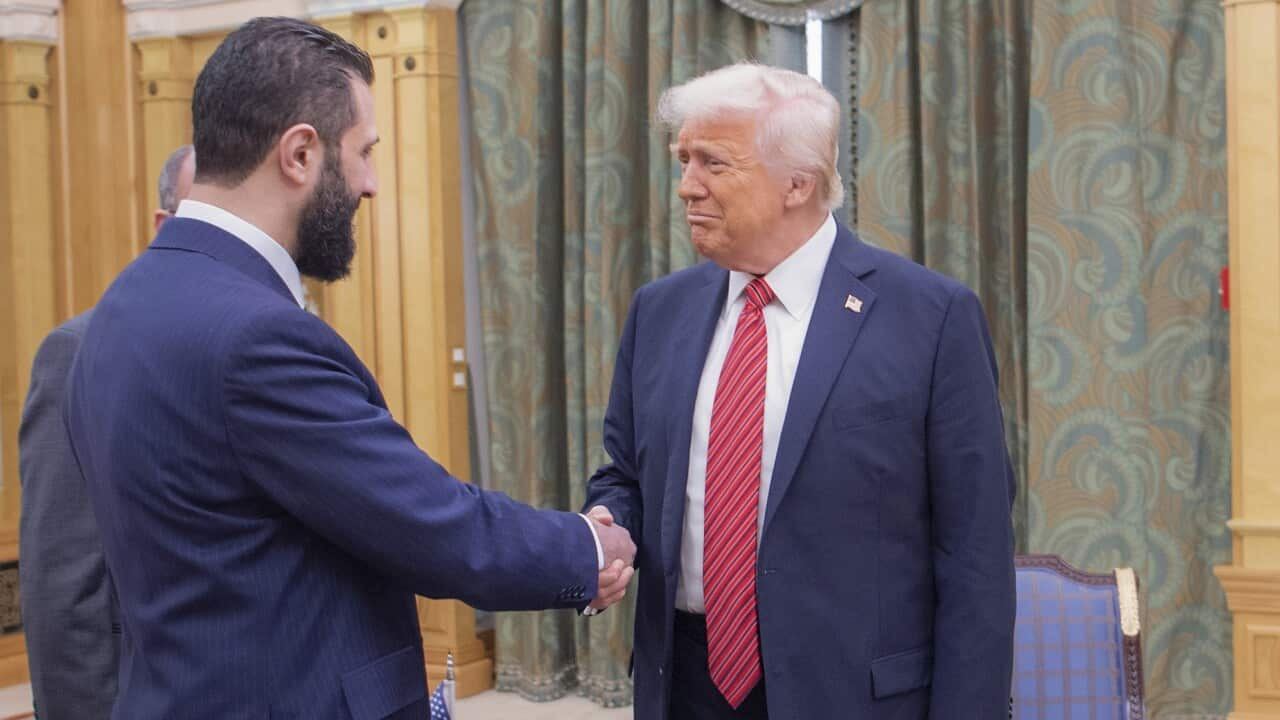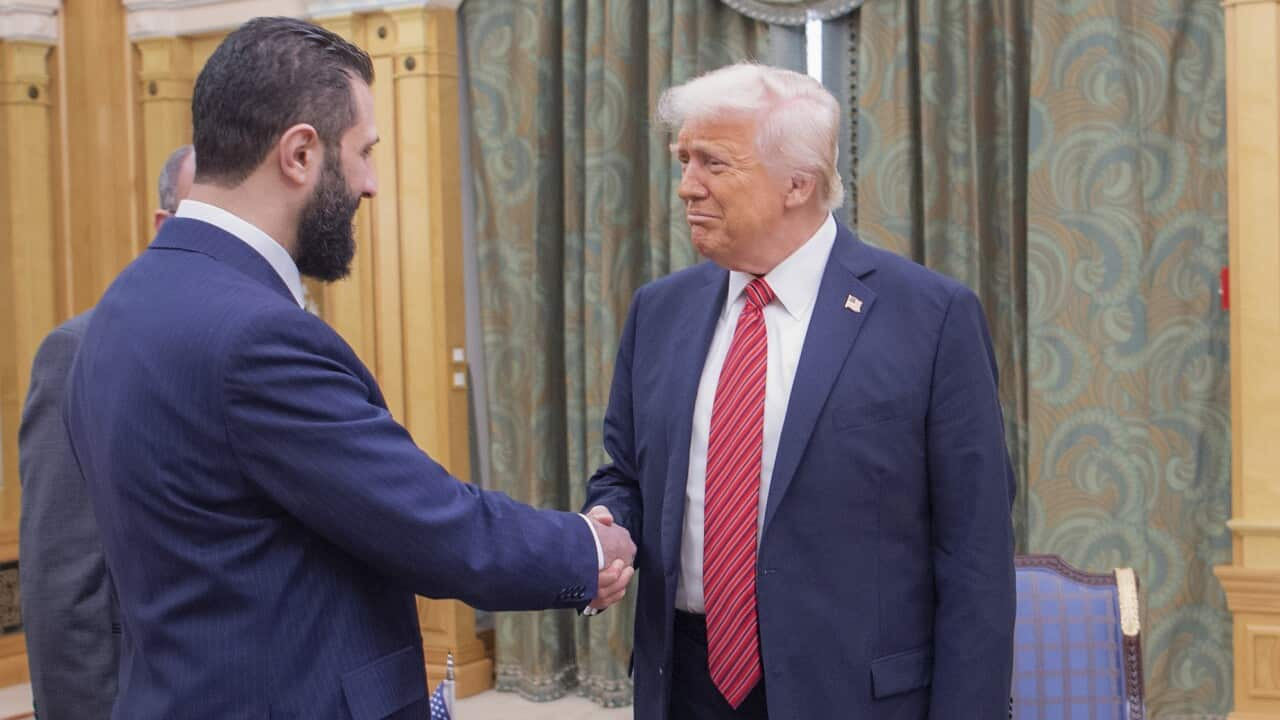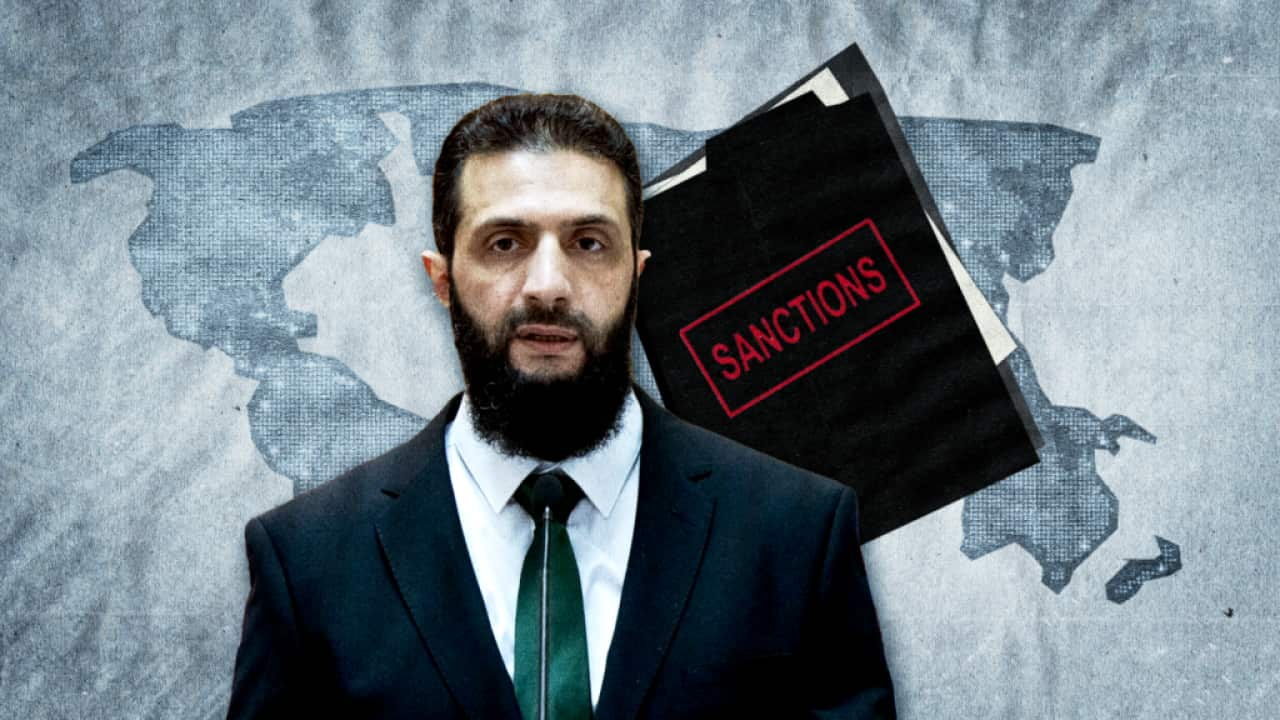Key Points
- The US designated Syria as a state sponsor of terrorism in 1979 and imposed sanctions in 2004.
- Lifting of sanctions marks a shift in how the US traditionally interacts with foreign powers, experts say.
- The US' shift could lead to backlash from Russia and Iran, who supported Syria under Bashar al-Assad.
United States President is a "break from the past" in how the world's strongest economy deals with foreign powers.
Speaking at an investment forum in Riyadh, Saudi Arabia, during his current trip to the Middle East, Trump said he "will be ordering the cessation of sanctions against Syria in order to give them a chance at greatness".
Soon after the announcement, Syrians across the country celebrated in the streets.
Part of the decision includes US access to Syrian oil, reassurances of Israel's security, and a proposal to build a Trump Tower in Damascus.
Since 2004, Syria has been subject to intense economic sanctions that were imposed during the regime of. Al-Assad now lives in exile.
But 45 years before these sanctions were imposed, the US had in 1979 designated Syria as a "state sponsor of terrorism" because of its support for the Iran-backed
Trump's announcement signals a significant shift in US foreign policy towards Syria.

US Donald Trump visited Saudi Arabia this week, his first official state visit in his second term as president. Source: SBS News
A 'Trump first' approach
Dr Jessica Genauer, senior lecturer in international relations at Flinders University, said Trump wants to focus more on economic interests rather than partnerships with traditional US allies in Europe and Canada.
She described this as a "Trump first" approach to geopolitics.
"Trump wants to focus on what he would call 'business deals' rather than traditional geopolitics or ways in which foreign policy and diplomacy have traditionally been practised by US presidents," she told SBS News.
"We would typically see US presidents wanting to first privilege countries that they feel [are] aligned with the US in terms of values and political systems. So, we are thinking about consolidated liberal democracies.
"It would be rare to see a US president put so much emphasis on a close partnership with counterparts who are from a very different type of political regime."
Genauer said it showed a "break from the past" and demonstrated Trump's "lack of regard" for Syria's past human rights abuses.
Why did Donald Trump choose Saudi Arabia?
The US president would also have been motivated to improve his standing with Saudi Arabia, a powerful nation with its own ambitions in the Middle East.
"Saudi Arabia's Crown Prince Mohammed bin Salman wants to look like an effective player in the Middle East's regional context," Genauer said.
"What Trump could not give Mohammed bin Salman in that visit were any concessions around the Israeli-Palestinian conflict, which is really the geopolitical issue that is uppermost in everyone's minds, including domestic Saudi populations.
"I think that this was Trump trying to give Mohammed bin Salman a geopolitical win without having to actually deal with the much more difficult situation of the Israeli-Palestinian conflict."
The US and Syria: A fraught relationship
During his visit to Saudi Arabia, Trump also became the first US president in 25 years to meet a Syrian leader.
Trump's meeting with Syria's new leader, Ahmed al-Sharaa, is particularly significant, with al-Sharaa being a former member of militant organisation al-Qaeda — proscribed as a foreign terrorist organisation by the US since 1999.
Al-Sharaa is said to have left al-Qaeda around 2016.
The Syrian leader first joined al-Qaeda in Iraq, where he spent five years in US-run prisons in the country.
In December 2024, Al-Sharaa led a group of militias to a swift, surprise victory over former Syrian president Bashar al-Assad's forces after a prolonged 13-year civil war.
The US removed a $US10 million ($15 million) bounty on his head the same month.
Ian Parmeter, a researcher at the Centre for Arab and Islamic studies at the Australian National University, said al-Sharaa's leadership marks an "opportunity" for Syria to become a "pro-West" country.
Al-Sharaa has been working to soften his image, and has swapped his battle fatigues for suits.
LISTEN TO

New Syrian leader Ahmed al-Sharaa swaps army fatigues for a suit for diplomatic talks
SBS News
06:10
"It has long been an American ambition for Syria to be turned away from traditional allies towards the West," Parmeter told SBS News.
"Syria has certainly been very much opposed to American interests in the region under the Assad [family] regime, which went from 1970 until the recent deposing of Bashar al-Assad."
Parmeter said that Syria has been historically supported militarily and politically by Russia and Iran, but that could now change.
He expects the US will demand a removal of Russia's military presence in Syria, which he said al-Sharaa could agree to.
"Russia entered the civil war on behalf of Assad and was behind the bombing of Sunni Muslims and Aleppo, so al-Sharaa has no emotional or practical relationship with Russia," he said.
What did US sanctions actually mean for Syria?
According to Human Rights Watch, the the Syrian government are the most severe, prohibiting almost all trade and financial ties between the US and Syria, including a prohibition on the export or re-export of US goods, software, technology and services to Syria.
Exceptions for certain categories of humanitarian aid, such as food and medicine, and a ban on banks and foreign companies' use of the US financial system to process Syria-related transactions were made.
Will the lift on sanctions last?
Parmeter said the US is likely to continue to favour Syria.
"It has been a bipartisan ambition of American presidents to try to find a way to affect Syria," he said.
"And if Trump is able to do that through a lifting of sanctions, I feel we would see bipartisan support even if a Democrat were elected at the next presidential election in 2028.
"I can't see them changing that."
International relations expert Genauer said Syria would be looking to maintain good relationships under its new leadership, after being perceived as an "international pariah" under Assad.
"The new Syrian government has shown that they are willing to create good diplomatic relations with almost any country around the world. They want to just try to build up good relations, strong networks within the region, wherever that's possible."
— Additional reporting from Reuters.





